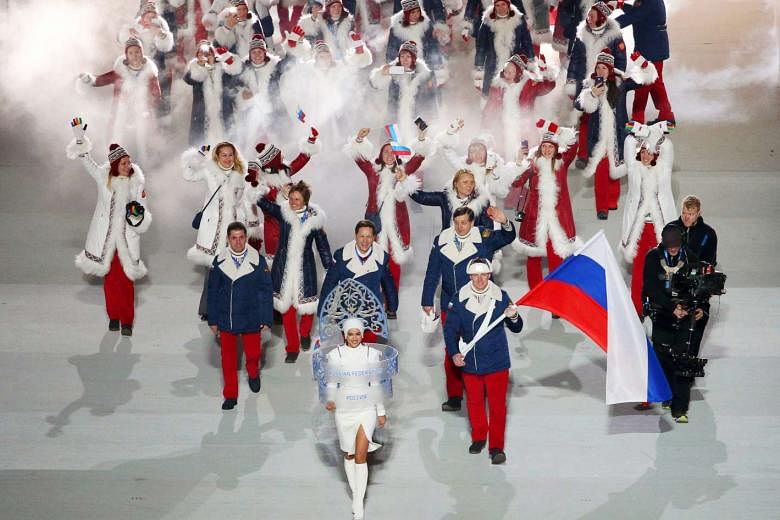PARIS • The United States and Germany are leading calls for Russia to be exiled from international competition after the McLaren report said doping in sport in the country represented an "institutional conspiracy".
More than 1,000 athletes in the Summer and Winter Olympics and Paralympics "can be identified as being involved in or benefiting from manipulations to conceal positive testing", said Canadian lawyer Richard McLaren on Friday.
Drug test samples at the Sochi Winter Olympics in 2014 were even manipulated by the addition of salt and coffee, said the report prepared for the World Anti-Doping Agency (Wada).
"It's another staggering example of how the Olympic movement has been corrupted and clean athletes robbed by Russia's state-supported doping system," said Travis Tygart, the head of the US Anti-Doping Agency (Usada). "The International Olympic Committee (IOC) has to act and clean athletes won't be satisfied until Wada is empowered to be a truly independent global regulator and the Russian Olympic Committee is suspended until deemed code compliant.
"No international sporting events should be held in Russia until its anti-doping programme is fully code compliant and all the individuals who participated in the corruption are held accountable."
The IOC this week extended sanctions against Russia while the International Association of Athletics Federations (IAAF) recently renewed its suspension of the country. That had already seen the entire Russian track and field team banned from the Rio Olympics in the summer.
Clemens Prokop, the president of the German athletics federation (DLV), called for a total ban on all Russian competitors.
"Russian sport should be excluded from all international competitions, including the Olympic Games, until its credibility is restored," he said.
"This is a fundamental attack against the Olympic movement when the values of the movement are dragged through the mud by a country. Measures taken must be up to the mark. The credibility of the IOC is at stake."
Following the McLaren report, the IOC pledged to re-test all Russian competitors' samples from the 2014 Winter Games in Sochi, and IOC president Thomas Bach told reporters that the world governing body would now also test all the samples of the Russians who took part in the 2012 London Olympics.
The IOC, which opposed a blanket ban on Russia at the Rio de Janeiro Olympics, said the report revealed "a fundamental attack on the integrity of the Olympic Games and on sport in general".
Russia has remained defiant.
"The Russian sports ministry with full responsibility states there are no government programmes to support doping in sport," said a statement in response to the McLaren report.
The ministry added that it "will continue the fight against doping with zero tolerance" and "carefully study the information contained in the report with the aim of coming up with a constructive position".
Moscow has steadfastly denied any government backing for doping. But it has struggled to lift international doubts.
The IOC has two disciplinary inquiries into Russian sport and doping at the 2014 Winter Games.
AGENCE FRANCE-PRESSE, REUTERS

